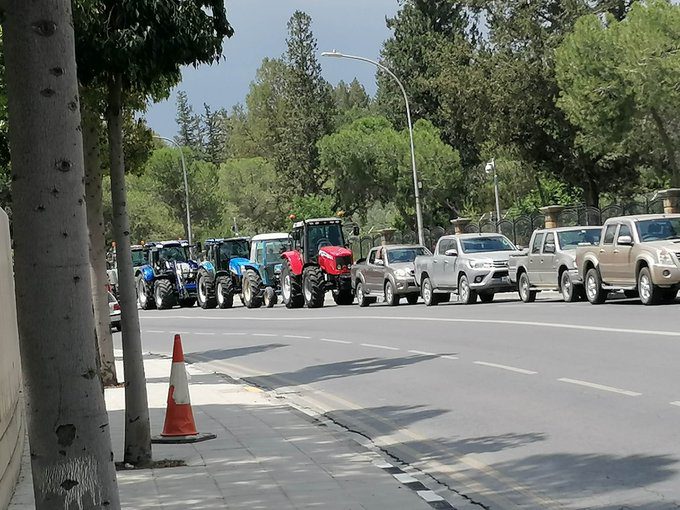
Hundreds of tractors appeared outside the doors of the EU’s top office in Nicosia, Cyprus, on Monday as farmers took to the streets to protest tough new EU pesticide regulations that they say could destroy their livelihoods.
Cypriot farmers are angry about the proposed EU Nature Restoration Law designed to rewild 20% of the continent’s landmass by turning it back to nature and which farmer organisations claim will cripple their industry due to harsh regulations imposed on what pesticides farmers can use.
Hundreds of tractors assembled outside the EU offices before arriving at the presidential palace, calling on the Cypriot government to veto the pesticide proposals.
A statement from the farmers called on the Cypriot government to oppose the law at an EU level and unite with European member states which could see their agricultural sector “financially destroyed” by the new EU edicts.
The Nature Restoration Law caused a stir in Brussels last week. The EPP broke ranks with the green consensus in order to postpone a vote at the EU Parliament Environment Committee, claiming that the new law would penalise food producers at a time of rising inflation. The proposals will place a ban on the use of pesticides in designated areas in the hopes of halving pesticide consumption by 2030.
The leader of the Cypriot Farmers’ Union (EKA), Panicos Chambas, stated in a radio interview following the demonstration that up to 79% of arable land could be lost due to the new regulations and that the island nation would become dependent on expensive food imports. According to Chambas, huge swathes of the country would become unviable for farming as food producers would be restricted to using natural pesticides.
The Restoration Law is a world first that imposes legally binding targets on European nations to convert land back to nature which, proponents argue, is essential to prevent a collapse in biodiversity. The demands have directly clashed with Europe’s powerful agricultural lobby as opponents say the proposals jeopardise food security.
Protesting farmers claim that Cypriot crops would become susceptible to the Mediterranean fruit flies in particular, and if forced to rely on natural pesticides, the nation’s agricultural industry would lose competitiveness on the international market.
The Cypriot protests beg comparison with similar events in the Netherlands which has seen a revolt by Dutch farmers over EU-imposed nitrogen cuts and the forced buy-out of insubordinate farms. The backlash from farmers was a contributing factor to the rise of the Dutch Farmers Movement (BBB) which topped the polls in recent regional elections as many allege that the targeting of farmers forms part of a wider conspiracy to destabilise European food supplies.
The Cypriot farming sector specialises in high-value crops, such as citrus fruits and grapes, and employs approximately 10% of the nation’s workforce in comparison to an EU average of 4%. Both farmers and the Cypriot government say that the EU proposals are unfeasible and that relying on natural pesticides is simply absurd for the Mediterranean island.
The Cypriot government announced that they will seek concessions from Brussels, which will be presented when the European Parliament reconvenes to discuss the Nature Restoration Law again on June 27th. The clash comes amid speculation that the issue of food security could tip next year’s election in favour of populists as voters hit back against the overregulation of the EU agri sector.
